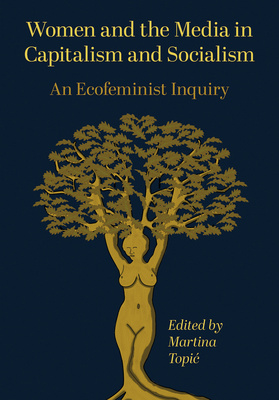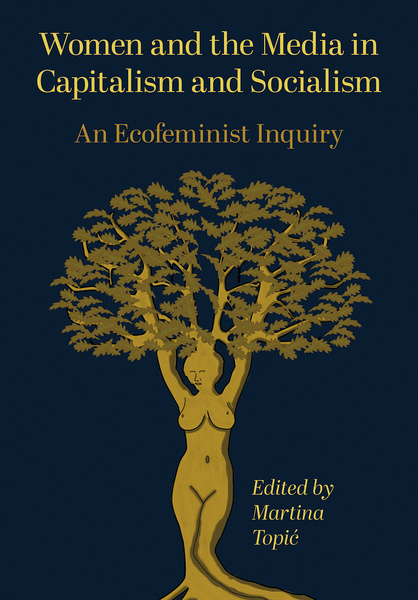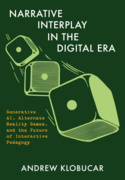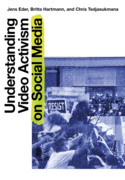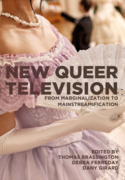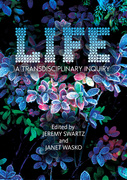Women and the Media in Capitalism and Socialism (Book)
An Ecofeminist Inquiry
Edited collection examining the position of women in context of the political economy of the media. Discusses historically rooted masculinity, sexism, violence, inequality, underrepresentation, dual expectations, and lack of recognition faced by women in the media, looking particularly at gendered newsrooms and who creates the news. 9 b&w illus.
Edition
This book looks at the position of women in the media in capitalism and socialism using ecofeminist lenses. It argues that when the position of women in the media in capitalism is at stake, women suffer from discrimination, structural barriers, lack of recognition and a masculine way of thinking across countries whereas in socialism women did not suffer from the lack of recognition but they did suffer from dual expectations, which placed a burden on them and enabled the return of patriarchal discrimination with the change of regimes and this leads to the notion of masculine thinking that underpinned socialist regimes too.
Whilst it is obvious from existing research, as well as chapters in this book, that socialist regimes had more respect for women, it is clear that they were also underpinned by a masculine thought to an extent, which resulted in a double burden on women in society and this was mirrored by the media.
Therefore, the book argues that the new socialism is needed, the one which will take into consideration patriarchy in all of its elements and include not just policies on equal pay and equal opportunities in the organisation but also has active women’s voices in designing policies that last and that makes an impact on equality in all of its social segments.
Contributions from Nikolina Borčić, Ovidiana Bulumac, Joseph Nwanja Chukwu, Carla Cruz, Maria Cunha, Ivana Čuljak, Ivona Čulo, Béatrice Damian-Gaillard, Elena Díaz, Sanita Nwakpu Ekwutosi, Barbara Henderson, Bethany Fenner, Mirela Holy, Lisa Makarchuk, Anka Mihajlov Prokopović, Chinedu Jude Nwasum, Jude Nwakpoke Ogbodo, Eugénie Saitta, Paloma Sanz-Marcos, Nataša Simeunović Bajić, Salomé Sola-Morales, Martina Topić, Hanne Vandenberghe, Lea Vene, Marija Vujović, Belén Zurbano-Berenguer, Batya Weinbaum.
Dr Martina Topić is a Reader at Leeds Business School, Leeds Beckett University, UK. She is editor-in-chief of Corporate Communications: An International Journal and editor-in-chief of the Emerald book series Women, Economics and the Labour Relations.
Introduction: An Ecofeminist Perspective on Women and the Media in Capitalism and Socialism
Martina Topić
SECTION I: WOMEN AND THE MEDIA IN CAPITALISM
Whither Gender Equality? The Image of Women in News over Time
Hanne Vandenberghe
Losing on Aggregate: The Visibility of Female Sports Journalists in the UK and the Dominant Perceptions of Female Football Journalists
Bethany Fenner and Barbara Henderson
New New New (n3) Portrayals of Women in Television and Postfeminist News
Batya Weinbaum
When Sexism in Politics became a Media Issue in France: Mobilization of Female Political Journalists
Béatrice Damian-Gaillard and Eugénie Saitta
Who Creates the News about Violence Against Women? The Case of Spain
Belén Zurbano-Berenguer Salomé Sola-Morales and Paloma Sanz-Marcos
Women in Portuguese Print Media
Maria João Cunha and Carla Isabel Cruz
One Human, Unequal Gender: A Critical Appraisal of Women and News Creation in Nigeria
Chinedu J. Nwasum, Jude Ogbodo, Joseph N. Chukwu and Sanita E. Nwakpu
SECTION II: WOMEN AND THE MEDIA IN SOCIALISM AND POST-SOCIALISM
The Media Representation of Female Politicians in Croatia: Who will give us power if we think we do not deserve it?
Mirela Holy
Being a Female Journalist in Serbia: Socialist and Post-Socialist Perspective
Nataša Simeunović Bajić, Marija Vujović and Anka Mihajlov Prokopović
Cuban Women and the Media: A View of Cinema
Elena Díaz and Lisa Makarchuk
Narratives about Women's Identity in Yugoslavia from a Croatian Perspective
Nikolina Borčić and Ivona Čulo
Visual Representation of Fashion and Clothing Practices in the post-war Period of Socialist Yugoslavia in the Magazines Žena u borbi (Women in Struggle) and Naša moda (Our Fashion)
Ivana Čuljak and Lea Vene
The Female Profile Promoted in Scânteia during the First Decade of the Communist Regime in Romania
Ovidiana Bulumac
'The book offers a multidimensional analysis that spans various countries, media landscapes, and sociopolitical contexts, illustrating the pervasive nature of gender inequality and the challenges of dismantling patriarchal structures. [...] This work not only contributes significantly to the fields of gender studies and media studies but also serves as a call to action for addressing the intertwined oppressions of women, media, and nature in the quest for a more just world.'
'Women and the Media in Capitalism and Socialism: An Ecofeminist Inquiry, edited by Dr. Martina Topić, is a timely contribution to examine the position of women in the context of the political economy of the media. Through the socialist ecofeminist lenses, Topić advances knowledge of the topic by providing collective views from both capitalist (Section I of the book) and socialist and/or post-socialist (Section II of the book) countries, which makes it one of the most unique contributions to the literature. While embracing a variety of economic contexts, the book offers diverse perspectives from all contributing chapters in discussing historically rooted masculinity, sexism, violence, inequality, underrepresentation, dual expectations, and lack of recognition faced by women in the media industry. The status of women in the media as reflected through social change and social movements deserves more attention and this book is a MUST-READ.'
'This is an exciting international collaboration examining the political economy of women in the media industries. Issues of autonomy and constraint are explored in pressing matters of women’s visibility and their representation. The reader is drawn to consider just how women are represented but also how women as cultural workers are perceived in different socio-economic contexts. This collection will be of interest to scholars of the cultural industries, gender identities and relations in the workplace, and those of journalism.'

